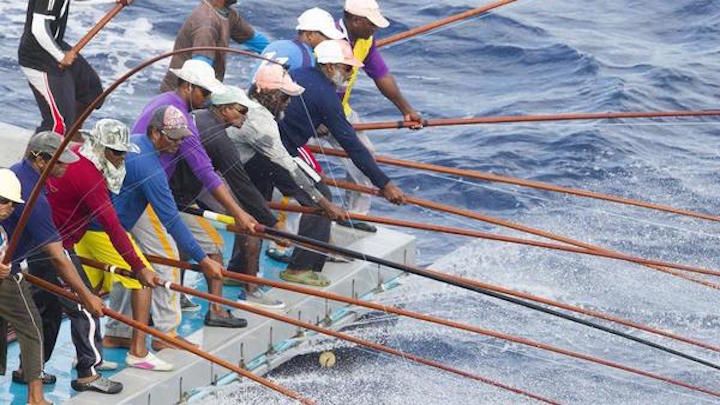Lawmakers appeal for protection of Maldives fisheries industry
Four resolutions were submitted to parliament.

15 Jul 2019, 09:00
Parliament will prioritise legislation to protect the local fisheries industry ahead of the Eid al-Adha break in August, Speaker Mohamed Nasheed said on Monday.
The former president’s pledge came after four resolutions related to the fisheries industry were submitted by MPs of the ruling Maldivian Democratic Party.
The resolutions call on the government to set up offshore fishing platforms, support a ban on trawling within the Indian Ocean, outlaw foreign fishing vessels from the country’s Exclusive Economic Zone, and establish island-level fish processing through public-private partnerships initiated by local councils.
Fisheries Minister Zaha Waheed was in attendance to listen to debates on the resolutions.
Become a member
Get full access to our archive and personalise your experience.
Already a member?
Discussion
No comments yet. Be the first to share your thoughts!
No comments yet. Be the first to join the conversation!
Join the Conversation
Sign in to share your thoughts under an alias and take part in the discussion. Independent journalism thrives on open, respectful debate — your voice matters.




